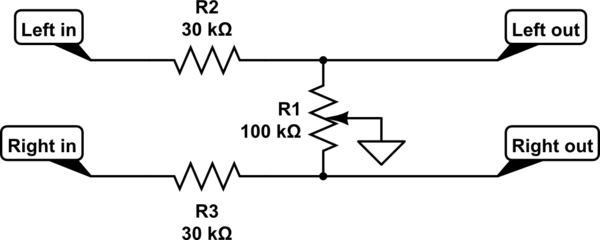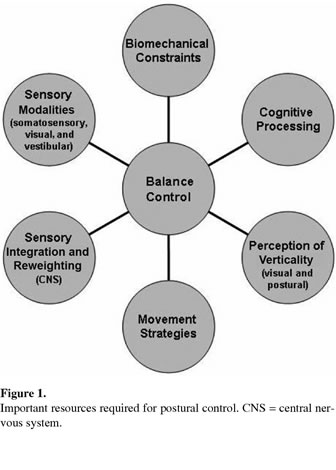
noun
- See under balance(def 17).
noun
- a state of equilibrium or equipoise; equal distribution of weight, amount, etc.
- something used to produce equilibrium; counterpoise.
- mental steadiness or emotional stability; habit of calm behavior, judgment, etc.
- a state of bodily equilibrium: He lost his balance and fell down the stairs.
- an instrument for determining weight, typically by the equilibrium of a bar with a fulcrum at the center, from each end of which is suspended a scale or pan, one holding an object of known weight, and the other holding the object to be weighed.
- the remainder or rest: He carried what he could and left the balance for his brother to bring.
- the power or ability to decide an outcome by throwing one’s strength, influence, support, or the like, to one side or the other.
- (in winemaking) the degree to which all the attributes of a wine are in harmony, with none either too prominent or deficient.
- Accounting.
- equality between the totals of the two sides of an account.
- the difference between the debit total and the credit total of an account.
- unpaid difference represented by the excess of debits over credits.
- an adjustment of accounts.
- the act of balancing; comparison as to weight, amount, importance, etc.; estimate.
- preponderating weight: The balance of the blame is on your side.
- Fine Arts. composition or placement of elements of design, as figures, forms, or colors, in such a manner as to produce an aesthetically pleasing or harmoniously integrated whole.
- Dance. a balancing movement.
- Also called balance wheel. Horology. a wheel that oscillates against the tension of a hairspring to regulate the beats of a watch or clock.
- (initial capital letter) Astronomy, Astrology. the constellation or sign of Libra; Scales.
- Audio. (in a stereophonic sound system) the comparative loudness of two speakers, usually set by a control (balance control) on the amplifier or receiver.
verb (used with object), bal·anced, bal·anc·ing.
- to bring to or hold in equilibrium; poise: to balance a book on one’s head.
- to arrange, adjust, or proportion the parts of symmetrically.
- to be equal or proportionate to: I’m always happy when cash on hand balances expected expenses. One side of an equation must balance the other.
- Accounting.
- to add up the two sides of (an account) and determine the difference.
- to make the necessary entries in (an account) so that the sums of the two sides will be equal.
- to settle by paying what remains due on an account; equalize or adjust.
- to weigh in a balance.
- to estimate the relative weight or importance of; compare: to balance all the probabilities of a situation.
- to serve as a counterpoise to; counterbalance; offset: The advantages more than balance the disadvantages.
- Dance. to move in rhythm to and from: to balance one’s partner.
verb (used without object), bal·anced, bal·anc·ing.
- to have an equality or equivalence in weight, parts, etc.; be in equilibrium: The account doesn’t balance. Do these scales balance?
- Accounting. to reckon or adjust accounts.
- to waver or hesitate: He would balance and temporize endlessly before reaching a decision.
- Dance. to move forward and backward or in opposite directions.
- in the balance, with the outcome in doubt or suspense: While the jury deliberated, his fate rested in the balance.
- on balance, considering all aspects: On balance, the new product is doing well.
noun
- a weighing device, generally consisting of a horizontal beam pivoted at its centre, from the ends of which two pans are suspended. The substance to be weighed is placed in one pan and known weights are placed in the other until the beam returns to the horizontalSee also microbalance
- an imagined device for assessing events, actions, motives, etc, in relation to each other (esp in the phrases weigh in the balance, hang in the balance)
- a state of equilibrium
- something that brings about such a state
- equilibrium of the body; steadinessto lose one’s balance
- emotional stability; calmness of mind
- harmony in the parts of a wholebalance in an artistic composition
- the act of weighing factors, quantities, etc, against each other
- the power to influence or controlhe held the balance of power
- something that remains or is leftlet me have the balance of what you owe me
- accounting
- equality of debit and credit totals in an account
- a difference between such totals
- chem the state of a chemical equation in which the number, kind, electrical charges, etc, of the atoms on opposite sides are equal
- a balancing movement
- short for spring balance
- in the balance in an uncertain or undecided condition
- on balance after weighing up all the factors
- strike a balance to make a compromise
verb
- (tr) to weigh in or as if in a balance
- (intr) to be or come into equilibrium
- (tr) to bring into or hold in equilibrium
- (tr) to assess or compare the relative weight, importance, etc, of
- (tr) to act so as to equalize; be equal to
- (tr) to compose or arrange so as to create a state of harmony
- (tr) to bring (a chemical or mathematical equation) into balance
- (tr) accounting
- to compute the credit and debit totals of (an account) in order to determine the difference
- to equalize the credit and debit totals of (an account) by making certain entries
- to settle or adjust (an account) by paying any money due
- (intr) (of a business account, balance sheet, etc) to have the debit and credit totals equal
- to match or counter (one’s dancing partner or his or her steps) by moving towards and away from him or her
noun
- the Balance the constellation Libra, the seventh sign of the zodiac
early 13c., “apparatus for weighing,” from Old French balance (12c.) “balance, scales for weighing,” also in the figurative sense; from Medieval Latin bilancia, from Late Latin bilanx, from Latin (libra) bilanx “(scale) having two pans,” possibly from Latin bis “twice” + lanx “dish, plate, scale of a balance.” The accounting sense is from 1580s; the meaning “general harmony between parts” is from 1732; sense of “physical equipoise” is from 1660s. Balance of power in the geopolitical sense is from 1701. Many figurative uses are from Middle English image of the scales in the hands of personified Justice, Fortune, Fate, etc.; e.g. hang in the balance (late 14c.).
1570s, “be equal with,” from balance (n.). Meaning “bring or keep in equilibrium” is from 1630s; that of “keep oneself in equilibrium” is from 1833. Of accounts, from 1580s. Related: Balanced; balancing. Balanced meal, diet, etc. is from 1908.
n.
- A weighing device, especially one consisting of a rigid beam horizontally suspended by a low-friction support at its center, with identical weighing pans hung at either end, one of which holds an unknown weight while the effective weight in the other is increased by known amounts until the beam is level and motionless.
- A state of bodily equilibrium.
- The difference in magnitude between opposing forces or influences, such as for bodily parts or organs.
- Equality of mass and net electric charge of reacting species on each side of a chemical equation.
- To adjust a chemical equation so that the number of each type of atom and the total charge on the reactant (left-hand) side of the equation matches the number and charge on the product (right-hand) side of the equation.
In addition to the idiom beginning with balance
- balance the books
also see:
- checks and balances
- hang in the balance
- off balance
- on balance
- redress the balance
- strike a balance
- tip the balance
 Liberal Dictionary English Dictionary
Liberal Dictionary English Dictionary


